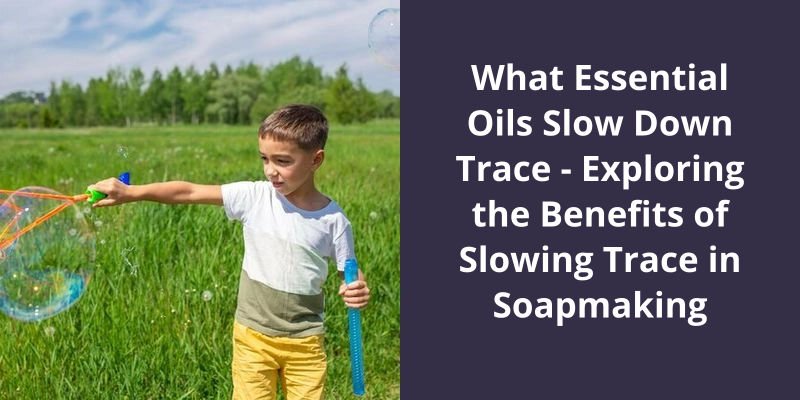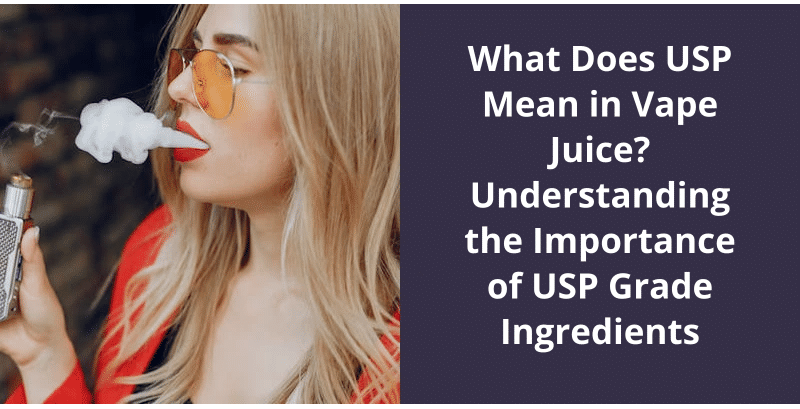Essential oils that slow down trace in soap making process include lavender, peppermint, and eucalyptus. Lavender oil is well-regarded for its calming scent and its ability to slow down the tracing process, giving you more time to add in colours or swirls. Peppermint oil, known for its refreshing fragrance, is another oil that can slow down trace. Similarly, eucalyptus oil, with its invigorating scent, is also used to retard the speed of trace. As every soap maker’s experience might vary, it’s advisable to conduct small batch tests to determine the precise effect of these essential oils on your soap mixture.

Which Essential Oils Do Not Accelerate Trace?
When it comes to soap making, the time it takes for the soap to thicken and solidify is known as the trace. Sometimes, certain oils can speed up this process and make the soap almost impossible to work with. This is where essential oils can be useful. There are some essential oils like lavender, citrus oils, vetiver, tea tree, spearmint, rosemary, lemongrass, and eucalyptus that don’t accelerate trace.
Lavender is one of the most versatile essential oils used in soap making. Not only does it have a calming effect on the skin, but it’s also known for it’s anti-inflammatory properties. Citrus oils like lemon, lime, and mandarin are excellent for their fresh and uplifting scent, and they also have antibacterial and antiviral properties. Litsea Cubeba, also known as May Chang, is another citrus essential oil that can be used in soap making.
Vetiver is known for it’s earthy and woody scent and is often used in perfumes. It’s calming effect on the skin is perfect for soap making. Tea tree is another essential oil that’s antibacterial properties and is commonly used in acne treatment. Spearmint essential oil has a refreshing and cooling effect on the skin, and it can also alleviate stress and anxiety.
Rosemary is an excellent choice for soap making as it’s a fresh and herbaceous scent, and it also has antiseptic and antibacterial properties. Lemongrass is a popular essential oil and is used in a wide range of skincare products due to it’s astringent and antiseptic properties. Eucalyptus essential oil is another popular choice for it’s refreshing scent and antiseptic properties, making it a good choice for soap making.
How Essential Oils Can Affect the Scent and Properties of Soap
- Eucalyptus oil is commonly used in soap-making for it’s fresh, clean scent and it’s natural cleansing properties.
- Lavender oil can add a calming, floral aroma to soap, as well as it’s natural antibacterial properties.
- Peppermint oil can provide a refreshing, invigorating scent to soap, as well as it’s natural cooling and soothing properties.
- Tea tree oil is often used in soap-making for it’s powerful antimicrobial properties, making it useful for those with acne-prone or sensitive skin.
- Citrus oils, such as lemon, orange, and grapefruit, can add a bright, energizing scent to soap, as well as their natural astringent and cleansing properties.
- Rosemary oil is often used in soap-making for it’s refreshing, herbal scent and it’s natural anti-inflammatory properties.
When it comes to soap making, controlling the rate of trace is crucial to achieving the desired consistency and texture. Some oils can speed up the trace process while others have properties that slow it down. It’s important to be mindful of the oils used in soap making, as certain oils can greatly affect the end result. In this article, we’ll explore which oils can slow down trace and how to use them effectively.
What Oils Slow Down Trace?
When making soap, trace is the stage where the mixture begins to thicken and become more viscous. It’s an important step in the soap-making process as it helps to ensure that the oils and lye have mixed together properly. However, sometimes trace can occur too quickly, which can make it difficult to add in other ingredients or create intricate designs. This is where the use of oil comes in; certain oils can actually help to slow down the trace.
When selecting oils to use in soap-making, it’s important to consider their chemical makeup. Hard oils, such as coconut oil and palm oil, have a higher level of saturated fats which can cause the mixture to thicken more quickly. These oils can be useful in creating a harder bar of soap, but they should be used sparingly if you want to slow down the trace. On the other hand, soft oils like almond oil and sunflower oil have a higher level of unsaturated fats which help to keep the mixture more fluid.
The temperature of the oil can also have an impact. If the oil is too cold, it can cause the mixture to solidify and speed up the trace. On the other hand, if the oil is too hot, it can cause the mixture to become too thin and difficult to work with. It’s important to find the right temperature for the oil to ensure that it helps to slow down the trace.
Another factor to consider is the amount of oil that’s added into the mixture. While soft oils can help to slow down the trace, adding too much can cause the soap to become too soft. It’s important to find the right balance of oils to ensure that the soap has the right consistency and is also moisturizing for the skin. Generally, a good ratio is around 70% hard oils and 30% soft oils.
How Can the Use of a Stick Blender Affect Trace and What Techniques Can Be Used to Control It?
- Using a stick blender can speed up the process of trace.
- Blending for too long or at too high of a speed can cause the soap mixture to trace too quickly.
- Techniques such as pulse blending or blending at a lower speed can help control trace.
- Additionally, using slower moving fragrance oils or additives can also help slow down trace.
When it comes to soap making, trace is a crucial stage where the soap mixture thickens and emulsifies. One common question among soap makers is whether orange essential oil accelerates trace. Interestingly, citrus essential oils like orange oil have the opposite effect and tend to slow down trace. In fact, orange essential oil can be a helpful addition in achieving intricate swirl designs. Adding a generous amount of 5x Sweet Orange, Valencia Essential Oil can enhance the fragrance of the soap and give it a vibrant color.
Does Orange Essential Oil Accelerate Trace?
Trace in soap making is the point where the mixture thickens and becomes less fluid, marking the transition from a liquid consistency to a solid-bar soap. There’s a common misconception that citrus essential oils, such as orange essential oil, can accelerate trace in soap making. However, in reality, the opposite is true.
A higher dosage of orange essential oil can slow down the trace further than a lower amount, so it’s essential to measure the oil carefully to achieve the desired outcome. Additionally, the temperature of your mixture can also have a significant impact on trace, so monitor the temperature closely.
It’s a refreshing, citrus scent that can uplift the senses and promote a relaxing ambiance in the room. Additionally, orange essential oil is rich in antioxidants and has antibacterial properties that can help soothe and moisturize the skin, making it a popular ingredient in natural skincare products.
When selecting orange essential oil for your soap making recipe, it’s crucial to choose an oil that’s of high quality. Poor quality essential oils can have a weak scent or even contain harmful additives that can irritate the skin.
Tips for Measuring Essential Oils Accurately for Soap Making
When measuring essential oils for soap making, it’s important to use accurate measurements to ensure the desired scent and therapeutic properties. To do this, use a scale rather than measuring spoons or drops. Use a container to measure the essential oils and tare the scale to zero for each type of oil. It’s also helpful to understand the conversion rate for different essential oils based on their density.
Accelerating trace in cold process soap can be both a blessing and a curse. While stick blending can speed up the soap making process, it can also cause acceleration, making it difficult to create intricate designs or swirls. But fear not, there’s a simple solution to this issue that will allow you to have more control over your soap making process.
What Accelerates Trace in Cold Process Soap?
Another factor that can accelerate trace in cold process soap making is the use of certain fragrance oils. Fragrance oils that contain high amounts of vanilla or other additives can speed up trace significantly, so it’s important to be aware of this when choosing your scents.
Additionally, the temperature of your ingredients can also play a role in trace acceleration. If your oils and lye solution are too warm, they can accelerate trace and cause your soap to thicken too quickly. Conversely, if your ingredients are too cold, it can slow down trace and make it more difficult to achieve a smooth consistency. Ideally, you should aim to keep your ingredients at a moderate temperature to help control trace and ensure a successful soap batch.
The amount of water you use in your soap recipe can also impact how quickly trace sets in. If you want to slow down trace, consider using a higher water content in your recipe.
Using Essential Oils in Cold Process Soap: Some Essential Oils Can Also Accelerate Trace in Cold Process Soap Making, So It Is Important to Know Which Ones Can Be Tricky to Work With and How to Best Incorporate Them Into Your Soap Making Process.
Essential oils can speed up the process of cold process soap making. Hence, it’s important to select the oils carefully and learn the best way to add them to the soap making process.
Conclusion
Using a blend of essential oils can help create a unique scent while managing the trace. The key is to experiment with different oils and make a note of their effects on the soap-making process. By using essential oils strategically, soap makers can create high-quality products with consistent results.





